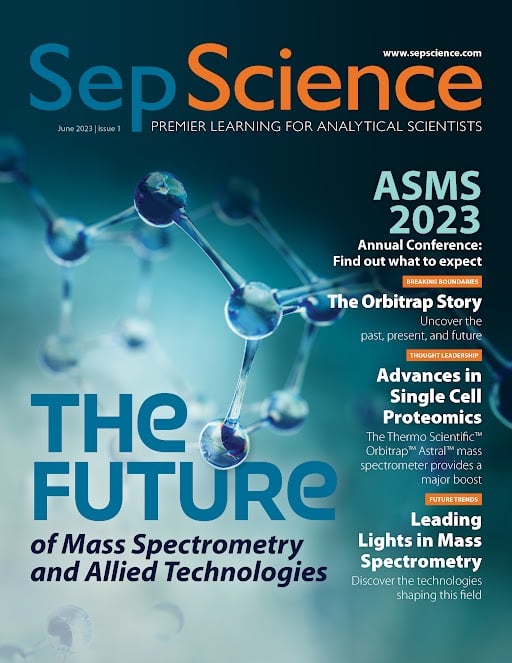The Thermo Scientific™ Orbitrap™ Astral™ mass spectrometer provides a major boost to single cell proteomic studies.

Dr Erwin Schoof is Associate Professor, Department of Biotechnology and Biomedicine, Section for Protein Science and Biotherapeutics, Cell Diversity Lab, at the Technical University of Denmark.
Q: Could you please tell us about yourself?
A: I've spent the last five or six years implementing single cell proteomics workflows. We have this biological need to understand cell heterogeneity and how different cell types interact, in my case, both in the normal blood system and very much so in a cancer setting.
Q: Why do we need to do single cell proteomics? How is it different than general proteomics?
A: For the last 20 years or so, we've been trying to do global proteomics, bulk proteomics from which we get an average of a biological system. We can take a tumor, mash it up, and read out what proteins were expressed, what was upregulated, and what was downregulated. But it lacks this resolution of what's happening at the subcellular level. Which cell populations within a tumor are responding to treatment? Which ones are not? How much tumor cell material is there? Is there immune cell infiltration? We miss out on all these things by taking a bulk proteomics approach. And to this end, single cell proteomics will give us more revolutionary insights.
Q: How does the Thermo Scientific Orbitrap Astral mass spectrometer change the ability to do single cell proteomics?
A: The Orbitrap Astral mass spectrometer presents a new horizon for the field of single cell proteomics, not only because of the high scan speed but also the added sensitivity compared to any other generation mass spectrometer I've worked with before. We are getting deeper proteomes and double the throughput in terms of single cells.
Q: What are the advantages of having both an Orbitrap and Astral mass analyzer?
A: We really like having multiple mass analyzers in our instrument. In the case of the Orbitrap Astral mass spectrometer, we rely on the Orbitrap analyzer for MS1 quantitation, very high resolution, and mass accuracy combined with reading out the MS/MS in the Astral analyzer, which is a super sensitive and very fast analyzer. The combination of the two allows us to achieve the deepest proteome coverage while retaining accurate and precise quantitation in single cells.
Q: What does the singe cell proteomics data look like from the Orbitrap Astral MS?
A: The first time I opened up a raw file from the Orbitrap Astral MS, I couldn't believe my eyes. We collected so many scans, more than 9,000 in just a 12-minute run. I had never seen such high intensities of MS2 scans coming from a single cell combined with the high resolution we got from the Astral analyzer. It was simply astonishing that the spectra looked so much clearer and less noisy.
Q: What single cell proteomics results have you been able to achieve with the Orbitrap Astral MS?
A: Not only were we able to increase the number of cells per day to 80, effectively doubling our throughput, but we also increased the number of proteins per cell from 2,000 to 3,000. So we really got a massive boost on both fronts. The deeper proteome coverage means we start picking up more key cellular decision making proteins like transcription factors, epigenetic regulators, and kinases that we were not measuring very well before. So we get more of the important cellular decision making proteins while also being able to increase our cell throughput. Being able to run 80 cells per day in a label free fashion with data-independent acquisition (DIA), we start to be able to run larger cohorts of cells in a relatively short time.
Q: How does your research combined with the Orbitrap Astral MS change your view of what is possible with single cell proteomics?
A: The research in my lab focuses a lot on making the world a healthier place. I think that the Orbitrap Astral MS will really allow us to study in more detail how protein signaling is causing disease and causing specific treatment responses. For example, in leukemia patients, we very clearly see that some patients respond to treatment while others do not and need to undergo additional therapy. This is where the Orbitrap Astral MS will allow us to measure the protein landscapes that are driving these biological phenotypes with single cell proteomics. The throughput and sensitivity that the Orbitrap Astral MS brings to single cell proteomics means that we can get much closer to the clinic. Single cell proteomics could eventually enter the clinic since we will have the throughput required to be able to make these real-time, real-life decisions, and that is how we're going to have a much more positive impact on human health.
 This article is featured in our June publication, 'The Future of Mass Spectrometry and Allied Technologies.' Download the PDF to discover the latest trends in mass spectrometry, including insights from some of the leading experts in the field.
This article is featured in our June publication, 'The Future of Mass Spectrometry and Allied Technologies.' Download the PDF to discover the latest trends in mass spectrometry, including insights from some of the leading experts in the field.
